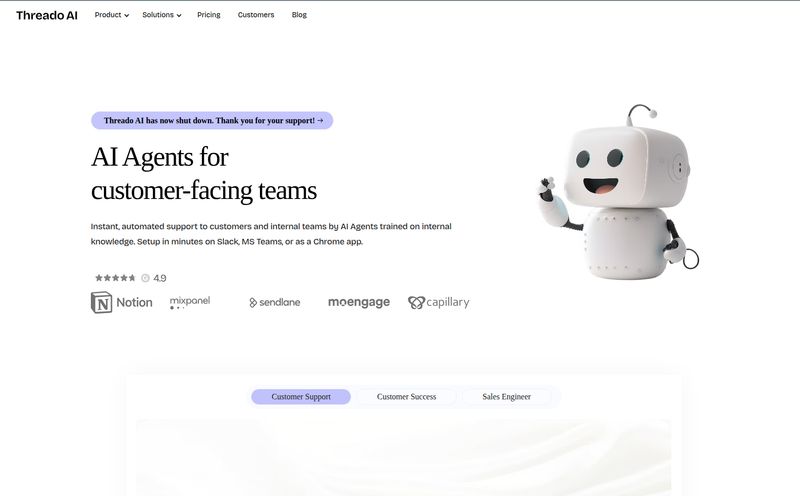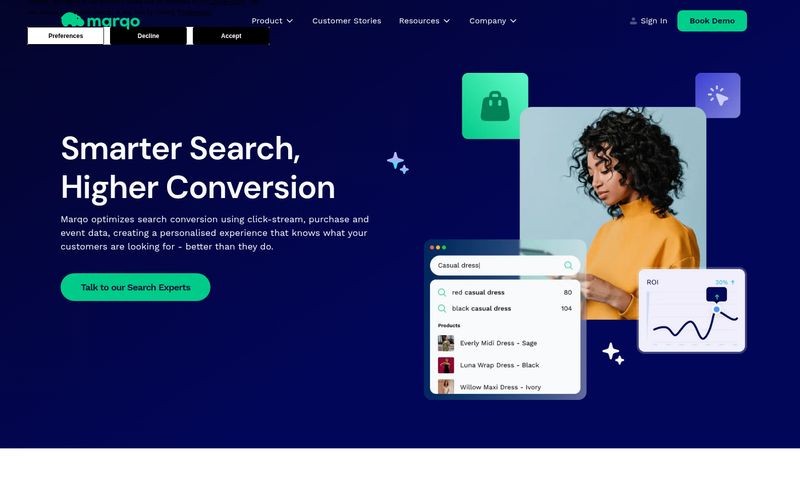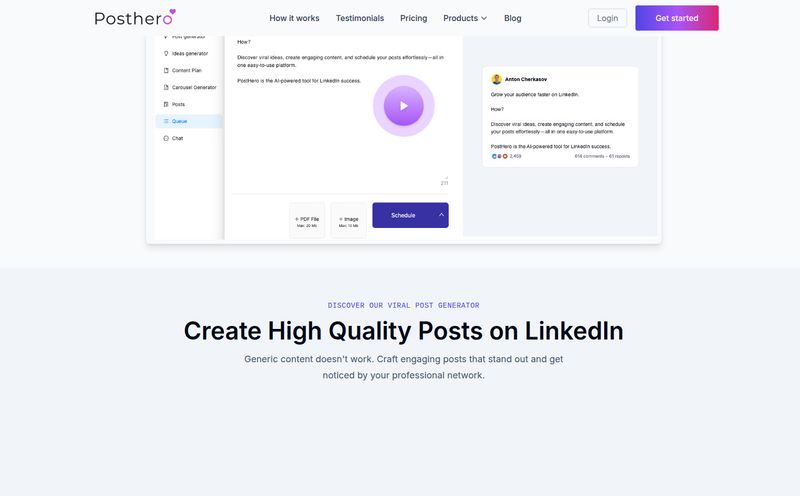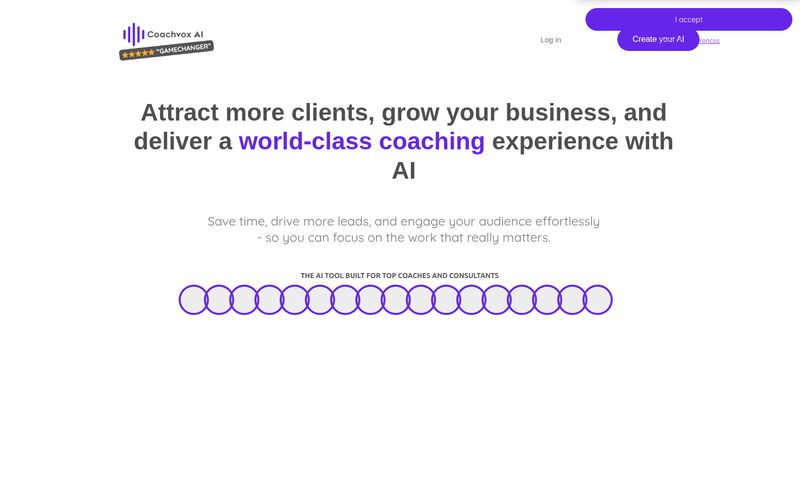For years, the ecommerce growth playbook has been pretty straightforward, if a little… uninspired. Got traffic but no sales? Slap a 20% off banner on the homepage. Shopping carts being abandoned? Fire off a discount code email. It works, kind of. But it’s a blunt instrument. A sledgehammer when you really need a scalpel.
I’ve seen so many brands get hooked on the 20% off coupon. It’s like a drug that feels good in the short term, but slowly erodes your margins until you’re just running to stand still. And with all the privacy changes coming down the pike—hello, cookiepocalypse!—our ability to even know who to target is getting fuzzier by the day.
So when I stumble across a tool that claims to tackle this head-on, my ears perk up. The tool in question is Session AI. It makes some pretty bold claims: convert anonymous visitors, reduce your reliance on those margin-killing promos, and do it all in just a few clicks. Sounds too good to be true? Maybe. That's what I thought, too. So I did a little digging.
What Exactly is Session AI, Anyway?
At its core, Session AI isn't another analytics dashboard that gives you more charts to ignore. It's a decision-making engine. It uses something they call “behavioral AI” to watch how visitors interact with your site in real-time. We're talking about the anonymous ones, the 98% of traffic that just shows up without logging in or having a purchase history with you.
Think of it like a seasoned, old-school shopkeeper. The kind who could watch someone walk into their store and just know. They could tell by the way you walked, what you looked at first, how long you lingered over an item, whether you were a serious buyer or just killing time. Session AI aims to be that shopkeeper for your website. It analyzes the digital body language of your visitors—mouse movements, scroll speed, hesitation over a button, what they click on and in what order.
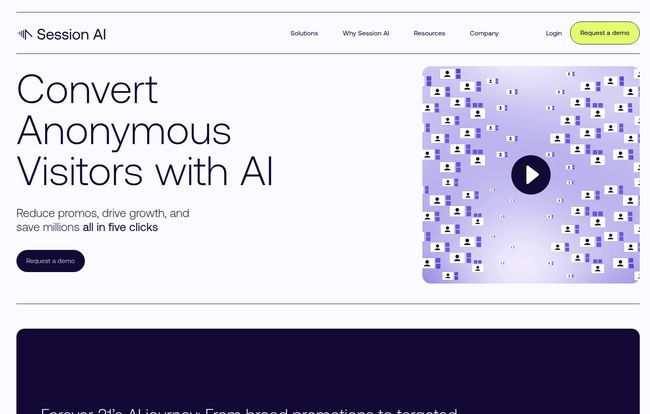
Visit Session AI
And here's the kicker: it claims to predict a visitor's likelihood to buy within their first five clicks. It then uses that prediction to take action, delivering a targeted incentive (like a small discount or a free shipping offer) only to the shoppers who are on the fence. Not to everyone. Just the ones who need a gentle nudge.
The best part? It does this without needing any personal data, cookies, or login information. In a world scrambling for privacy-first solutions, that’s not just a feature; it's a lifeline.
The Big Promise: Moving Beyond Blankets of Discounts
The biggest pain point I hear from ecommerce managers is the promotional death spiral. You offer a discount, your competitor matches it, you offer a bigger one, and so on. Your revenue might look okay, but your profit margins are getting shredded.
Session AI’s entire philosophy is about surgical precision. Why give a 15% discount to a customer who was absolutely going to buy at full price anyway? It's like throwing money out the window. This tool acts as a gatekeeper for your promotions, ensuring they only go to the visitors who are showing signs of hesitation—the ones who are about to bounce and leave their cart behind.
They’ve got some impressive social proof to back this up. Their case study with Forever 21 is a real attention-grabber. They apparently saw a:
24% conversion rate lift and a 5:1 ROAS (Return on Ad Spend).
Those aren't small numbers. A 24% lift in conversions is massive for a brand of that scale. It suggests that by swapping from a “spray and pray” discount strategy to an intelligent, targeted one, they not only increased sales but made each promotional dollar work five times harder. That’s the kind of math that gets a CFO excited.
How Does This "Behavioral AI" Actually Work?
Alright, so “behavioral AI” sounds cool, but what is it actually doing? Without getting lost in the technical weeds, it’s pattern recognition on a massive scale. The AI is trained on billions of data points from online shopping sessions to understand the subtle signals of intent.
- An erratic mouse movement might signal frustration or confusion.
- Rapidly comparing two products could mean a user is in the final decision phase.
- Hesitating over the “Proceed to Checkout” button is a classic sign of cart abandonment waiting to happen.
Session AI’s system picks up on these cues as they happen. This is a world away from traditional personalization, which might look at what you bought three months ago to guess what you want today. This is about what you're doing right now. It’s the difference between sending a follow-up email 24 hours later and offering a helping hand the exact second a customer looks lost.
The Benefits That Actually Matter to Your Bottom Line
Let's break down the promises into what they really mean for an online business.
Turning Ghosts into Customers (Anonymous Visitors)
Most of your website traffic is anonymous. They’re ghosts. You have no idea who they are, what they want, or if they’ve been there before. Traditional tools are useless here. Session AI is built specifically for this majority, giving you a chance to convert traffic that would otherwise have been a complete black box. This is probably its most powerful feature.
Protecting Your Precious Margins
This is the big one for me. Profitability is the name of the game. By moving from site-wide sales to individualised incentives, the potential for margin recovery is huge. You stop needlessly discounting for loyal customers or high-intent buyers. Every promotional dollar is spent with purpose, targeting only the potential revenue you were about to lose.
A Nod to Privacy (And Future-Proofing)
I've mentioned it before, but it bears repeating. The digital marketing world is being rebuilt on a foundation of privacy. Relying on third-party cookies is like building a house on a melting iceberg. A solution that is effective without personal data isn't just a clever workaround; it's a future-proof strategy. You're not just complying with GDPR and CCPA, you're getting ahead of the curve.
Okay, But What's the Catch? A Realistic Look
No tool is perfect, and I'm always skeptical of a silver bullet. Based on the info out there and my experience with similar platforms, here are a few things to keep in mind:
- It Requires Integration: They say it's easy—a "five click" setup—but let's be real. It still has to be properly integrated with your ecommerce platform (be it Shopify, BigCommerce, Magento, etc.). This isn't just a WordPress plugin. It’s a serious piece of kit that needs to be plugged into your site's engine.
- AI is Only as Good as its Data: The effectiveness of the behavioral predictions depends on the quality and volume of the training data. While I'm sure their models are robust, its performance on a very niche site with unusual customer behavior might need some fine-tuning.
- It's Not 'Set and Forget': This is a powerful tool, not a magic wand. You'll likely want to monitor its performance, understand the actions it's taking, and see how it's impacting your overall metrics. You’re still the pilot, even if you’ve got a very advanced autopilot.
What About Session AI Pricing?
Here’s the million-dollar question. Or, hopefully, a bit less. I went looking for a pricing page, and... nothing. The link was a 404. And you know what? That’s not suprising, and it’s not necessarily a red flag.
This is typical for enterprise-grade SaaS solutions. The pricing is almost certainly customized based on factors like your monthly site traffic, the number of sessions analyzed, and the specific solutions you need. It’s not a one-size-fits-all product. The path forward is clear: you have to request a demo. This allows them to understand your needs and give you a tailored quote. Don't expect a $49/month plan.
Who is Session AI Really For?
Looking at their case studies with giants like Verizon and Forever 21, it’s pretty clear who their target market is. Session AI feels best suited for mid-to-large-scale ecommerce businesses.
If you're a brand with substantial traffic, a significant portion of which is anonymous, and you feel like you're caught in the discounting trap, then you are squarely in their crosshairs. For smaller shops or startups, the investment might be a bit steep, but for established stores where a 1-2% lift in conversion rate means millions in new revenue, the ROI could be a no-brainer.
My Final Take
I have to say, I'm intrigued by Session AI. In a sea of me-too marketing tools, it feels like it's solving a real, pressing, and modern problem. The shift away from broad-stroke marketing toward intelligent, individual-level decisioning is the direction the entire industry is heading.
It’s not about more data, it’s about smarter actions. And it's definitely not about creepy surveillance, it’s about privacy-first efficiency. If you're running a serious ecommerce operation and you're tired of seeing your margins evaporate with every site-wide sale, Session AI is absolutely worth putting on your demo list. It might just be the scalpel your business has been looking for.
Frequently Asked Questions
- 1. How does Session AI work without cookies or personal data?
- It focuses on in-the-moment, anonymous behavioral signals. The AI analyzes digital body language like mouse movements, scroll speed, and click patterns during a single session to predict intent, without needing to know who the visitor is or what they've done in the past.
- 2. Is Session AI difficult to set up?
- The company claims an easy, "five-click" implementation process. However, as with any enterprise-level tool, it requires a proper integration with your specific ecommerce platform (like Shopify, Magento, etc.) to function correctly. It's designed to be streamlined but it's not a simple copy-paste job.
- 3. Will Session AI completely replace my promotion strategy?
- Not necessarily. It's more accurate to say it optimizes your promotion strategy. Instead of eliminating discounts, it ensures they are used much more efficiently—only being offered to on-the-fence, anonymous visitors who need a nudge to convert, thereby protecting your margins from those who would have bought anyway.
- 4. How much does Session AI cost?
- There is no public pricing available. Session AI operates on a custom pricing model, which is common for B2B SaaS platforms of this nature. Costs are determined based on your specific needs, site traffic, and scale. To get a price, you need to request a demo with their team.
- 5. What kind of ecommerce stores benefit most from Session AI?
- Based on their case studies and value proposition, Session AI is ideal for mid-to-large sized ecommerce stores with significant website traffic. Businesses that are heavily reliant on promotions and want to improve profitability and convert more of their anonymous visitors are the prime candidates.
References and Sources
- Session AI Official Website
- Session AI on LinkedIn
- Google's Blog on Third-Party Cookie Deprecation - For context on privacy changes.
